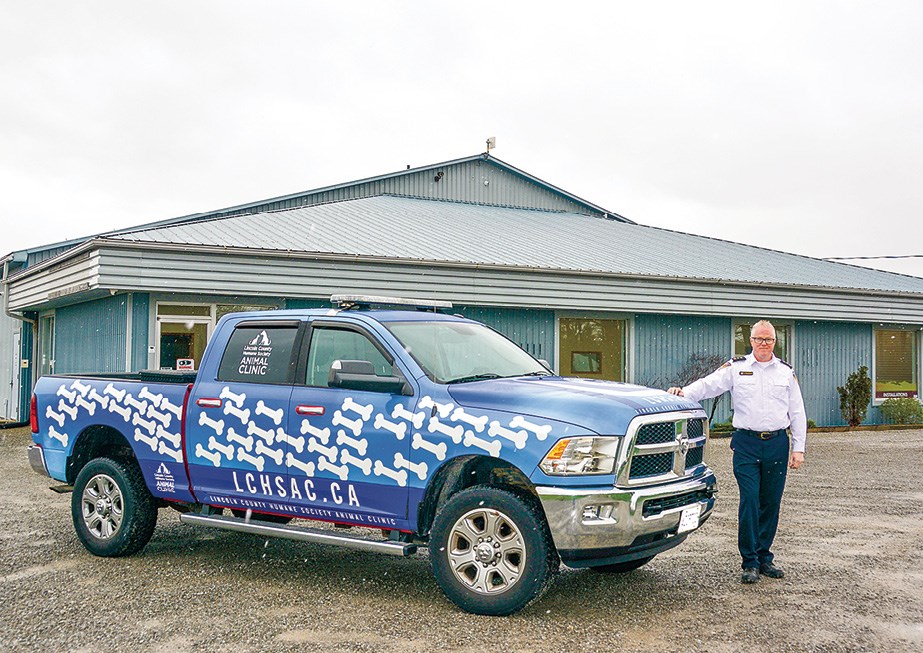Humane Society revamping former Truck Toppers on Hwy 20
The Lincoln County Humane Society (LCHS) has a new site for homeless and adoptable pets just outside Fonthill.
Executive Director Kevin Strooband met with the Voice at the LCHS’s second shelter location, in the former Truck Toppers location on Highway 20. The 10,000-square-foot facility is in the throes of renovation, but Strooband is hopeful that part of the building will be open for use by the summer. An open house will announced in the near future.
“It’s a great space, very solid,” said Strooband. “As part of our strategic planning, we’ve been looking for a long time, trying to find something centrally located in the Niagara region. We expect to attract a lot more people looking for pets, especially from South Niagara.”
The project architect still needs to provide specific pricing, said Strooband, which the LCHS board must approve, “and then we need all the drawings, the permit, and a contractor to do the work. It’s a big process.”
Although he wouldn’t disclose the purchase price of the Highway 20 site, Strooband said that “the building wasn't cheap, and the architect tells me that it could take over $500,000 to completely outfit the space with what we want.”
Modern glass and plastic kennels will eventually be installed, both in the new facility, and at the LCHS’ primary location on Fourth Avenue in St. Catharines, replacing the metal cages and cinder block enclosures currently in place.
“But in the short term, we'll probably just go to Home Depot and buy cages to keep the animals separated,” said Strooband. “We have some special design ideas for the site that we’re not putting out to the public just yet, but we are confident that these features will be appreciated by pet owners.”
The LCHS provides animal-related services via municipal contracts in St. Catharines, Thorold, Grimsby, and Niagara-on-the-Lake. Strooband said expanding to a second location will allow the LCHS to provide for more animals, and enhance its municipal contracts.
Some 2,300 animals were housed last year, including strays, surrenders, wildlife, and transfers from other agencies. This is a reduction from past years, and fewer numbers have allowed LCHS to help take in animals from other organizations within the Ontario Animal Welfare Network. There has been a shortage of dogs in Southern Ontario for adoption in recent years.
“Typically, our business has been about 70 percent cats,” said Strooband. “We used to have a big overpopulation problem with cats in in the areas that we cover, and I'm sure right across southern Ontario as well. But our spay and neuter program has had a positive impact, with 35,000 animals having had the procedure in the past ten years. It’s made a huge difference.”
For some reason, Windsor gets inundated with cats year after year, so we've been helping them with their overflow problem
Because the LCHS has experienced a drop in the number of cats, it has reached out to other areas, like the City of Windsor, to bring cats in.
“For some reason, Windsor gets inundated with cats year after year, so we've been helping them with their overflow problem.”
As at the Fourth Avenue location, a pet isolation area will be in the back of the new building, accessible by police officers as well as animal control officers.
“When Niagara Regional Police officers are driving around the region, and find a stray dog, they don't have to call our LCHS officer, and wait for them to arrive. They will bring the animal here, punch in the code, enter the building, and put the dog in a cage. They give it some water, and go back to work. My staff follows up in the morning. It’s a system that works well,” said Strooband.
Donations make up a significant chunk of the LCHS’s operating budget, along with the monies collected through municipal contracts. The non-profit organization has five mobile animal control officers, and a total staff of about 30 at present, which includes veterinarians and technicians in its clinics.
The new facility will generate some job opportunities, said Strooband. Local high schoolers who are interested in studying veterinary medicine or animal care after graduation are welcome to apply, and co-op work placements for current college and university students will be available.



